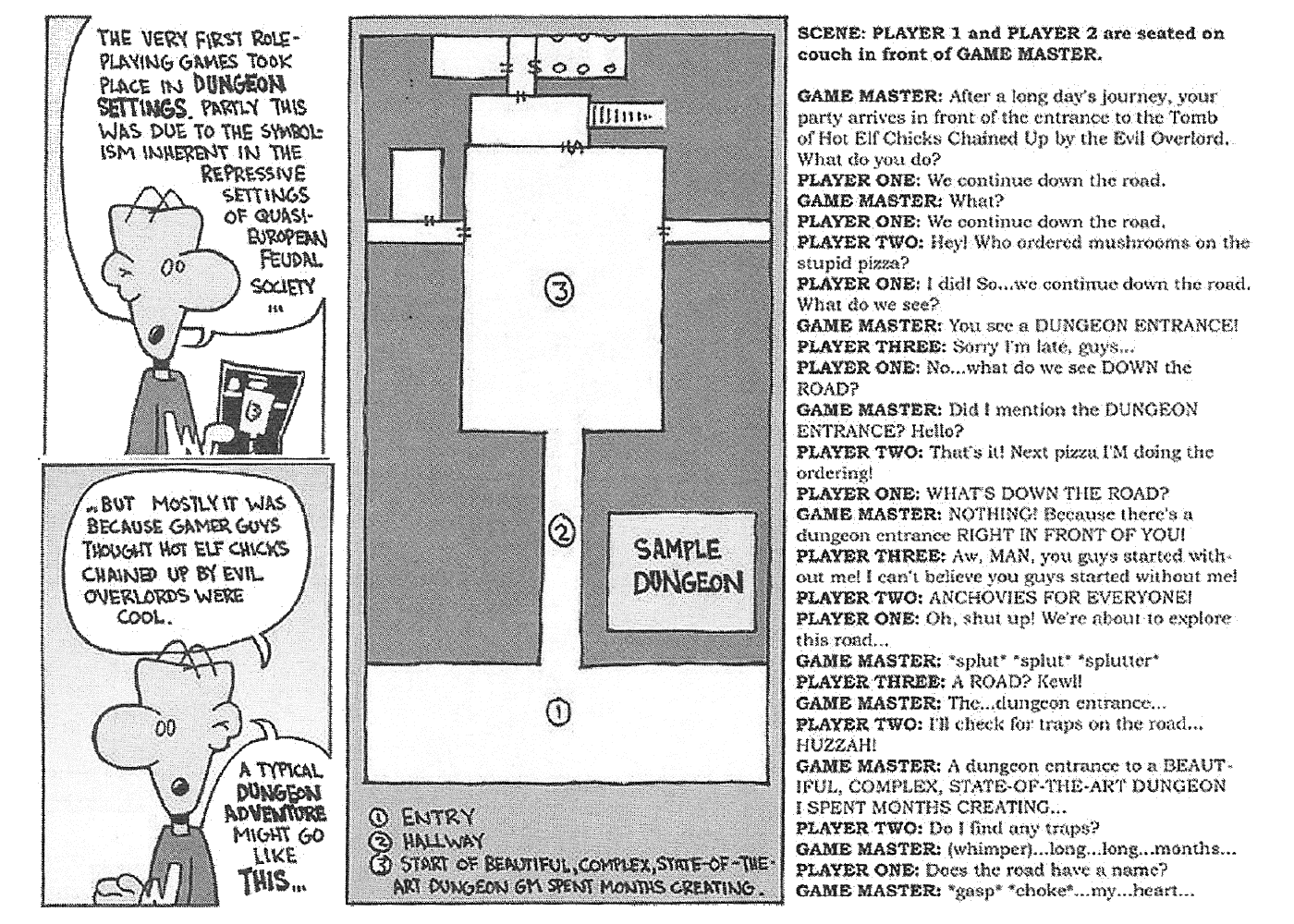
Role-playing games can be viewed as the cooperative creation of a story. However, who makes that story? In most traditional tabletop RPGs, there is a perception that the game-master (GM) has having greater control over the story than others players -- though not total. However, how is that control achieved?
.... perhaps cite Ron Edwards division of leadership, and the Collective Endeavor essay on dividing direction ....
My suggestion is that in practice, the GM wields authority primarily through indirect social pressure -- not by direct in-game mechanics. In most cases, the players are perfectly capable of totally derailing the GM's plans by how they play their characters. However, out of respect for the GM they do not. Instead, they pick up on meta-game cues for where the GM intends for the adventure to lead, and follow it.
This resolves a vital comparison between role-playing games and stories in other media. In books and films, the personality, actions, and dialogue of the central characters are critical to the story. Note that in film, it is often the lead actor who is the biggest draw -- even though they are generally acting out plots and speaking lines written by others. Within an RPG, the players have vastly more power than a traditional film actor. They write their own lines and decide on their own actions as well as portraying their characters. Despite this, players are often considered of minor importance relative to the GM. Many analyses of story in RPGs observe the GM's vital importance, and conclude that the most vital parts of the story are the task resolution, the actions of NPCs, and the background. I believe that this misplaces the focus of story.
Note that there is nothing wrong with the GM guiding the action of PCs, nor is there anything wrong with distributing the GM's power over background or resolution. However, these can be attempted based on a flawed understanding. Understanding meta-game social cues may help improve either of these.
The most obvious case is the most traditional: the dungeon. It is a well-known tendency, often mocked, of having the PCs come to the entrance to a dungeon -- and then proceed past it to go to the next town.
 |
| Illustration from Dork Tower |
However, this is only the simplest example of this happening. Particularly in non-dungeon modules, the GM is constantly giving signals about where she intends the adventure to go. There are many different types of cues, including the following:
We should look in detail at cases where the PCs break from the GM's intended cues. ....
Given the phenomenon of cues, we can try to break down the .... So we should break down the We should look in detail at cases where the PCs break from the GM's intended cues. ....